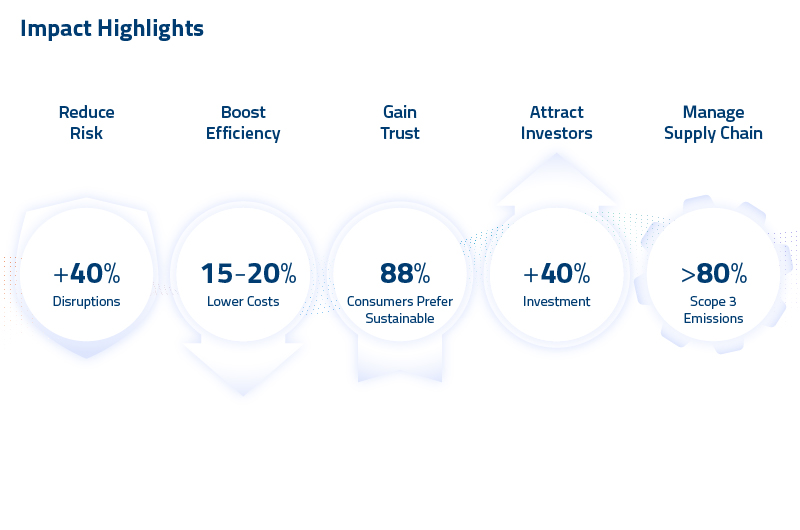CONCLUSION: EUROPEAN SUSTAINABILITY LEADERSHIP DESPITE REGULATORY TIMELINE CHANGES
As the EU regulatory landscape evolves, European businesses that lead in transparency and accountability will gain significant competitive advantages in domestic and international markets. The EU’s ESG reporting delays provide an opportunity—not a reason to pause—for companies to strengthen their fundamental sustainability capabilities and position themselves as industry leaders in Europe’s increasingly sustainable economy.
Leverage OPTEL’s European Expertise to Navigate EU’s ESG Reporting Delays
At OPTEL, we understand the nuances of European sustainability regulations and believe businesses should take control of their sustainability journey rather than waiting for regulatory mandates. Our end-to-end traceability solutions, deployed across major European markets, empower companies to:
- Map complex supply chains from raw materials to finished products across multiple European countries
- Monitor sustainability KPIs in real time against evolving EU standards and benchmarks
- Ensure compliance readiness while unlocking efficiency, cost savings, and brand value in European markets
- Enable data-driven sustainability decisions that go beyond compliance to create competitive advantage throughout Europe
Contact Us today to explore how our European-focused traceability solutions can future-proof your business against both regulatory requirements and market expectations across the European Union.







